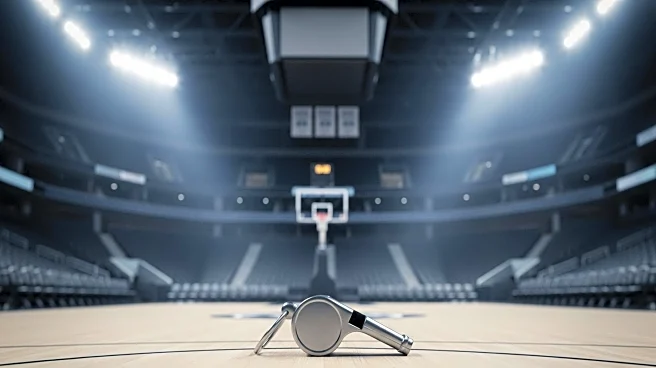What's Happening?
Armond Hawkins, the cornerbacks coach for North Carolina, has been placed on leave as the university investigates potential actions that may be detrimental to the team and institution. The suspension follows allegations that Hawkins provided sideline passes to a player's family, which constitutes an NCAA violation. Hawkins joined North Carolina after Bill Belichick was appointed as the team's coach in December. Prior to this, Hawkins served as a defensive analyst at the University of Washington in 2024, and has held positions at Arizona, Colorado, and USC. The announcement of Hawkins' suspension was accompanied by statements from Belichick and athletic director Bubba Cunningham, who expressed their commitment to the program.
Why It's Important?
The suspension of Armond Hawkins highlights ongoing compliance issues within college sports, particularly concerning NCAA regulations. This development could impact the team's performance and reputation, as the Tar Heels have already faced challenges this season, starting with a 2-3 record. The investigation may lead to further scrutiny of the program's management under Bill Belichick, potentially affecting recruitment and team morale. The situation underscores the importance of adherence to NCAA rules and the consequences of violations, which can affect both the team's competitive standing and the university's reputation.
What's Next?
The university's investigation into Hawkins' actions is ongoing, and further developments are expected as the athletic department assesses the situation. Depending on the findings, Hawkins could face additional disciplinary measures, and the program may need to implement changes to ensure compliance with NCAA regulations. Stakeholders, including the coaching staff and university administration, will likely focus on maintaining team stability and addressing any fallout from the investigation. The outcome could influence future policy decisions regarding sideline access and compliance protocols within the program.
Beyond the Headlines
This incident raises broader questions about the ethical responsibilities of coaching staff in collegiate sports. It highlights the need for transparency and accountability in managing team operations and interactions with players' families. The case may prompt discussions on the balance between maintaining competitive advantage and adhering to regulatory standards, potentially leading to reforms in how universities monitor and enforce compliance among their athletic programs.









